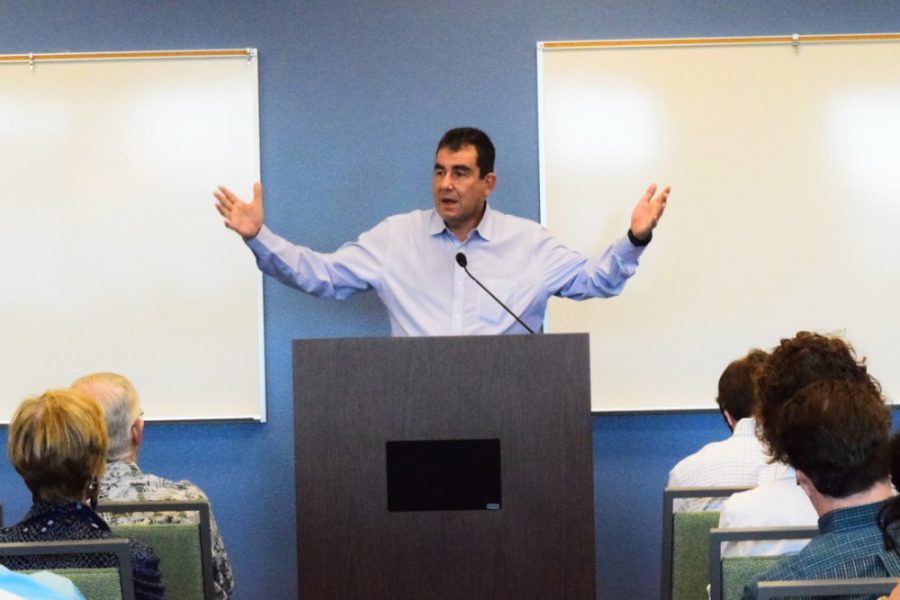On Tuesday night, the Hillel Foundation conference room was packed with guests, including UA students and community members, to listen to critically acclaimed author and Israeli journalist Ari Shavit.
Shavit has been described as one of the most outspoken columnists for Haaretz and also serves as a commentator for Israeli Public Television. He is an acclaimed author; his novel “My Promised Land: The Triumph and Tragedy of Israel,” which was published in 2013, was featured by The New York Times on its best seller list.
Shavit’s goal is to create a “loving, positive and constructive view of the Middle East,” as the conflict in that region continues to be publicized daily by the media. He emphasized the idea of taking Israel out of common, cliché ideas, as well as mentioning the need for reform in the Zionist movement.
Many in attendance were longtime fans of the author, while others were intrigued with the new speaker, his diverse ideas and the conflicts still at hand.
“I’m expecting to see how the Israel and Palestine conflict is still going on,” said Alexander Wassimi, an environmental sciences major, “and dealing with how the Zionists have occupied the area and what their stance is today on the situation.”
In his lecture, Shavit said his motive behind writing his novel and touring American colleges stemmed from Israel losing its narrative.
“While they have lost political wisdom, they still hold onto the wisdom of it,” Shavit said.
He made an emphasis on the problem of the generation gap. Shavit called for a stronger sense of culture with the youth, because of the strong cultural difference experienced throughout the generations.
Zach Bernath, a student studying Middle Eastern studies and political science, said he experienced the generation gap on the UA campus with his fellow students.
“On our campus, I see that there’s a huge apathetic condition when it comes to Jewish students,” Bernath said, “and in the larger picture, this campus is just very apathetic to international relations issues. It’s really up to us to find ways to connect the students to their [Jewish] culture.”
_______________
Follow Lauren Renteria on Twitter.









